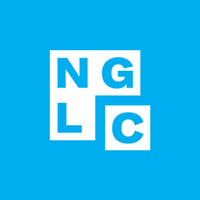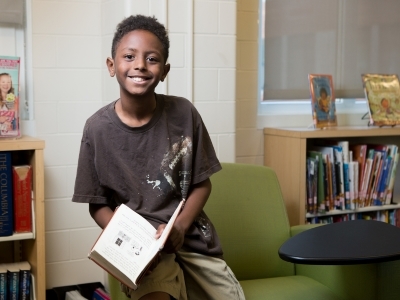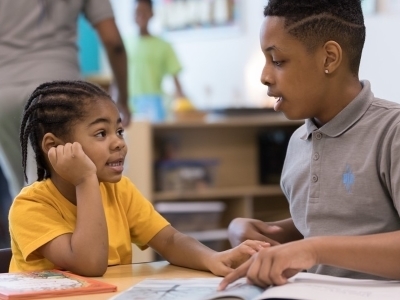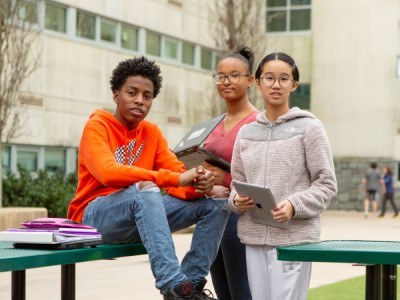PRESS RELEASE: Assessment for Learning Project Announces $2 Million in Grants
Topics
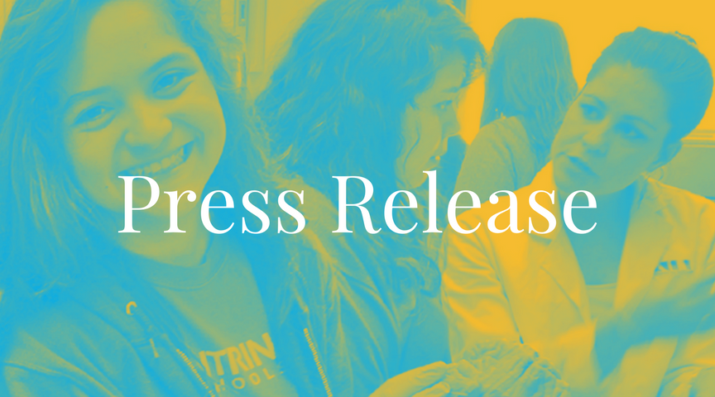
Educators are rethinking the purposes, forms, and nature of assessment. Beyond testing mastery of traditional content knowledge—an essential task, but not nearly sufficient—educators are designing assessment for learning as an integral part of the learning process.
Investments to catalyze new roles and strategies for assessment
Press Contact: Sarah Collins Lench, sarah.lench@uky.edu | 541-760-8206
March 23, 2016 —The Assessment for Learning Project (ALP) is fundamentally rethinking the roles that assessment should play in the K-12 education system. A unique partnership led by the Center for Innovation in Education (CIE) with EDUCAUSE’s Next Generation Learning Challenges (NGLC) and 2Revolutions, ALP issued a “request for learning” last fall offering grants to catalyze and scale innovations in assessment design. 148 proposals were submitted by schools, districts, state agencies, and nonprofits from across the country. Today, ALP announces $2 million in grant awards for 12 projects.
“For too long, assessment has been something that is ‘done to’ kids instead of with them,” said Gene Wilhoit, CIE Executive Director. “These 12 grantees have promising plans to use assessment to build student agency, support a broader definition of student success, and envision new systems of assessment and accountability.”
Located just outside of Atlanta, Henry County School District is one ALP grantee that is aiming to build student agency by making feedback from teachers and peers more meaningful and self-reflection more actionable. “Henry County Schools have been on the path to personalized learning for nearly two years, and throughout that time we have been searching for ways to measure learning that go beyond traditional standardized testing and surveys.” said Aaryn Schmuhl, Assistant Superintendent for Learning and Leadership. “We are honored to be thought partners with the ALP community as we examine ways to increase and assess student agency.”
The Hawaii Department of Education (HDE), another ALP grantee, is looking at how assessment can support a broader—and local—definition of student success. In 2015, the state Board of Education adopted a set of six learning outcomes grounded in Hawaiian values and culture: Belonging, Responsibility, Excellence, Aloha, Total Wellbeing, and Hawai’i (BREATH). Building on this work, HDE is using its ALP grant to develop and pilot a culturally responsive assessment framework for BREATH, also known as the Nā Hopena Aʻo.
"The Hawai’i Department of Education is excited to share the Nā Hopena Aʻo for the development of the whole child and to engage with others to design more culturally-based ways to assess student achievement,” said D. Kau'ilani Sang, Director of the Office of Hawaiian Education.
Rethinking assessment requires new ways of building assessment literacy among educators, and the Center for Collaborative Education (CCE) is partnering with the Rhode Island Department of Education (RIDE) and a consortium of 10 schools to do just that. Together, their ALP project will pilot a micro-credentialing system for teachers focused on performance assessment. The micro-credentials are designed to “walk the talk” of the performance-based practices they teach, where educators demonstrate proficiency through evidence of learning rather than professional development seat time.
“It is critically important to build new models of assessing what students know and are able to do that empower them to think critically and demonstrate their knowledge, skills, and dispositions,” noted Dan French, Executive Director of CCE. “In doing so, we need to build the capacity of teachers to become leaders in the new generation of assessments that are developed.” The Assessment for Learning Project includes awards to Henry County, HDE, CCE, Del Lago Academy-Campus of Applied Science, Fairfax County Public Schools, Summit Public Schools, The Colorado Education Initiative, Two Rivers Public Charter School, WestEd, Large Countywide and Suburban District Consortium, Learning Policy Institute, New Hampshire Department of Education. But the initiative doesn’t end there.
“The projects we’re funding and the dozens of other worthy proposals collectively tell a great story: that the field is already working hard to establish new roles and strategies for assessment and thinking deeply about the challenges that need to be addressed,” said Andy Calkins, Deputy Director of NGLC. “ALP is building a national community of practice where our grantees can join with other educators and thought leaders to share strategies and collaboratively problem-solve.”
The Assessment for Learning Project will be releasing more information about the community of practice and grantee updates over the next 24 months. To learn more about the ALP, visit: www.assessmentforlearningproject.org. To join the conversation, follow @ALPinsights and monitor #RethinkAssessment.
The Assessment for Learning Project is generously supported by the William and Flora Hewlett Foundation and the Bill & Melinda Gates Foundation.
------
About The Center for Innovation in Education
The Center for Innovation in Education (CIE) supports systemwide shifts to personalized learning and deeper learning outcomes for all students by helping states and local implementers take on the challenge of transforming systems.
About Next Generation Learning Challenges
Next Generation Learning Challenges (NGLC) accelerates college readiness and postsecondary success by catalyzing innovation, surfacing and disseminating new knowledge, and multiplying impacts through networks of practitioners, researchers and policymakers. NGLC is an initiative of EDUCAUSE, a nonprofit association whose mission is to advance higher education through the use of information technology.
About 2Revolutions
2Revolutions is an education design lab working with leaders in schools, districts, state agencies of education and higher education to solve the complex problems needed by our students, families and systems to move toward the Future of Learning as partners in transformation.
##

